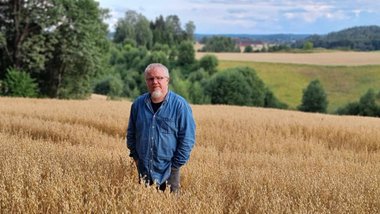The Golden-Domed Monastery: The Largest Field Hospital Continues to Save Maidan Activists
Anyone who is currently in Kyiv is living in captivity, be it information, military, or economic captivity. But the revolution continues, bringing more victims, blood, and suffering. The main field hospital became St. Michael's Golden-Domed Monastery, where around the clock a team of doctors is trying to save the lives of Maidan activists.
If you turn off the TV, do not go online, do not communicate with anyone, and plug your ears – then it can seem that all is quiet in Kyiv. Birds are chirping, the sun is shining, but for some reason there are few people on the streets and in the distance are huge plumes of smoke.
Even walking on the main streets, when there are no hired thugs around, it seems as if it is a Sunday morning in the capital. However, one should avoid St. Sophia’s Cathedral, as a strong smell of smoke lingers in the air, the sky is dark form it. A little further is St. Michael's Monastery, which has become the most important and the nearest field hospital for Maidan activists, who were taken in by doctors from the burned Trade Unions building.
The organization is topnotch. Near the entrance to the monastery, the patrol units of Maidan’s Self-Defense direct the flow of people and vehicles. Every minute residents arrive with endless supplies of medicine, food, warm clothes, mats, lights, and equipment. They also offer their assistance. But even when they enter through the gate of the monastery, they do not forget to cross themselves, pray so that the number of victims does not rise.
The territory of the monastery turned into a medical center and the headquarters for distributing clothing, food, equipment, and armor. The main medical point is in St. Michael's Cathedral – there the wounded are brought. The surgical ward was moved to the Church of St. John the Divine. The wounded who have received first aid and are not in intensive care sleep on the floor of the cathedral and are watched by nurses.
Operations are carried out in the surgical unit and in wards for patients in serious condition. The doctors are under tremendous stress, spending more than 24 hours on their feet, because the number of wounded is not getting any smaller – they are continuously being brought in by volunteers. Not everyone can be saved. One of the surgeons, who asked to be taken somewhere to sleep, said they were firing at the necks of the people, so there is not even any hope for salvation.
The wounded who can move on their own are taken to the homes of Kyiv residents. They are not brough to the hospital, because at any moment the police can come for them and take them to the police station.
The priests do not stand idly. They help the activities of the hospital, assisting the physicians, distributing food, and of course lead prayers. One small example: a couple of the priests put on helmets and began to direct vehicular traffic.
Father Serhiy Vasyvin came over to help direct the movement of volunteers and the vehicles bringing supplies. In his hands is grape juice and a rosary, he is actively involved in the work, adding that he “remains an ordinary priest, who stands next to you here and now.” According to him, the monastery will assist as much as necessary.
Not everyone is allowed in the surgical unit – the volunteers are in full control. A crowd of journalists rushes to the door as soon as one extremely tired doctor emerges to answer a few questions. We were approached by doctor Taras Semoschak, whose eyes look incredibly tired and who is dressed in a an embroidered shirt, a pea coat, and a lab coat. No one knows the number of wounded, but he said last night (February 19) there were at least a thousand, and he said that the official death toll is clearly lower that it is in reality.
Activists and those with minor injuries do not cease to pray for the bloodshed to stop. “We pray in our own words. We pray to be healthy and whole, we ask God to help us and others, so that all everyone will survive. We pray for the Maidan, for our family, for our country,” says Ruslan, a resident of the Rivne region.
His neighbor, Vitaly, adds: “To help us defeat this Satan, to stop this violence.”
Confrontation does not stop, and clashes have shifted to residential areas of the capital. People who had hired thugs lingering by their buildings organized patrols to defend their neighborhoods from the gangs of youths. As a result, the locals felt more at ease and the defenders stopped the massive looting of shops and apartments.









